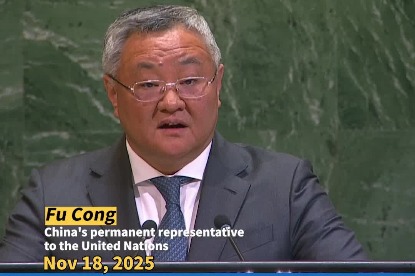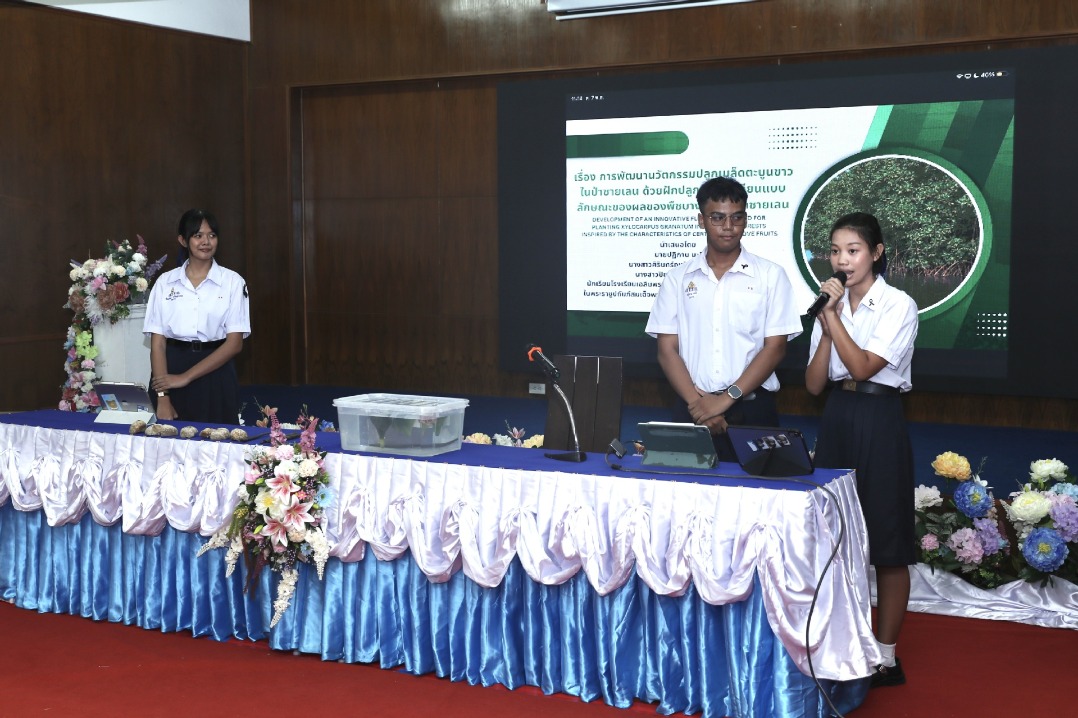Japan's business community urges dialogue

Leading figures from Japan's business community and civil society have stressed the need for their country to engage in constructive dialogue with China, with one warning that reckless political actions would undermine bilateral economic ties, which play a significant role in the Japanese economy.
Their comments came after Japanese Prime Minister Sanae Takaichi's remarks over Taiwan drew strong protests from Beijing.
Speaking to reporters on Monday, Yoshinobu Tsutsui, chairman of the Japan Business Federation, said: "I believe it all comes down to continuing communication and dialogue across various fields, and having both sides move toward resolving the issue."
Tsutsui made the remark after meeting with Takaichi at the Prime Minister's Office of Japan, along with the heads of the Japan Chamber of Commerce and Industry, and the Japan Association of Corporate Executives.
Tsutsui emphasized that "political stability is the prerequisite for business exchanges", urging the Japanese government to continue constructive dialogue.
Ken Kobayashi, chairman of JCCI, said: "Japan and China are economically inseparable. We should maintain a mutually beneficial relationship."
Mutsuo Iwai, acting chairperson of JACE, said, "It is important not to let private-sector dialogue come to a halt."
Kazuyuki Hamada, a political economist and Japan's former parliamentary vice-minister for foreign affairs, said that Takaichi lacks deep insight into Japan-China relations. Hamada expressed concern that this blind spot could lead to heightened tensions in the Asia-Pacific region. This, he noted, would not benefit the economic interdependence between Japan and China. He added that the economic impact of Chinese tourists and students shunning Japan "is immeasurable".
"Opportunities for mutual visits and direct understanding naturally form the basis for economic exchange," he said. "If such opportunities for communication between the peoples of both countries are hindered, the economic repercussions would be enormous."
China is the largest source of tourists to Japan, and its students form the bulk of Japan's international student population. Data from the Japan National Tourism Organization showed that the number of visitor arrivals in Japan from the Chinese mainland reached nearly 7.5 million in the first nine months of 2025, an increase of 42.7 percent year-on-year. According to the Japan Student Services Organization, more than 123,000 Chinese students were studying in Japan during the 2024 academic year — the highest number among all countries and regions.
Masaaki Kanai, director-general of the Japanese Foreign Ministry's Asian and Oceanian Affairs Bureau, visited China earlier this week.
Hamada said on Monday that he hopes Kanai, who just concluded his trip as a special envoy for Takaichi, could bring "concrete, future-oriented proposals — especially from the business community — for rebuilding Japan-China relations".
"Differences in positions and ways of thinking are to be expected between neighboring countries, but there is no other bilateral relationship like that of Japan and China, where history, culture, economics and geopolitics are so deeply intertwined. Prime Minister Takaichi should once again take this firmly to heart," Hamada said.
'Reckless actions'
Takakage Fujita, secretary-general of the Association for Inheriting and Propagating the Murayama Statement, a Japanese civil society group dedicated to upholding the 1995 statement that admitted Japan's wartime mistakes, said Takaichi's recent remarks are "reckless actions that undermine crucial Japan-China economic ties".
Fujita said the importance of Japan-China economic and trade exchanges is self-evident, as they play an extremely significant role in the Japanese economy.
"In particular, it is certain that East Asia, centered on China, will become the core of the global economy," he said. "For Japan, its economic and trade relations with China will therefore become even more important."
Spillover effect
Yangchoon Kwak, a senior professor at Rikkyo University's College of Economics in Japan, said any decrease in Chinese tourists visiting Japan would lead to lower consumption and deal a blow to the tourism and service sectors. Kwak added that a contraction in tourism and services would further spill over into Japan's trade, logistics and related industries that support goods and services.
"If the number of visitors from China were to fall sharply, the resulting drop in inbound consumption could reduce spending by 2.2 trillion yen ($14.2 billion), lowering real GDP by about 0.36 percent. In short, the risks extend not only to trade in goods but also to economic exchange in the broader sense," he said.
History has shown that whenever Japan-China relations worsened, Japanese exports to China dropped significantly. If tensions were to persist this time, Japanese industries highly reliant on the Chinese market — such as machinery, semiconductor components and auto parts — could be severely affected. The manufacturing sectors of Japan and China are deeply interconnected, so any disruptions in the supply of parts and materials or increases in costs would also affect Japanese companies, Kwak noted.
"If China moves to scale back economic ties with Japan, (Japanese) companies may, over the long term, be forced to reconsider their production and procurement routes that run through China," he said. "Thus, if trade, investment and people-to-people exchanges become rigid or constrained, the impact would not be limited to Japan. It could influence regional and global supply chains involving both countries."
Kwak emphasized that China is a strategic market for Japan. As China's middle-income group continues to grow, the country remains crucial for Japanese companies, serving not only as a low-cost production base but also as a "growth market".
































